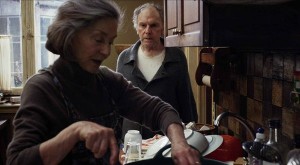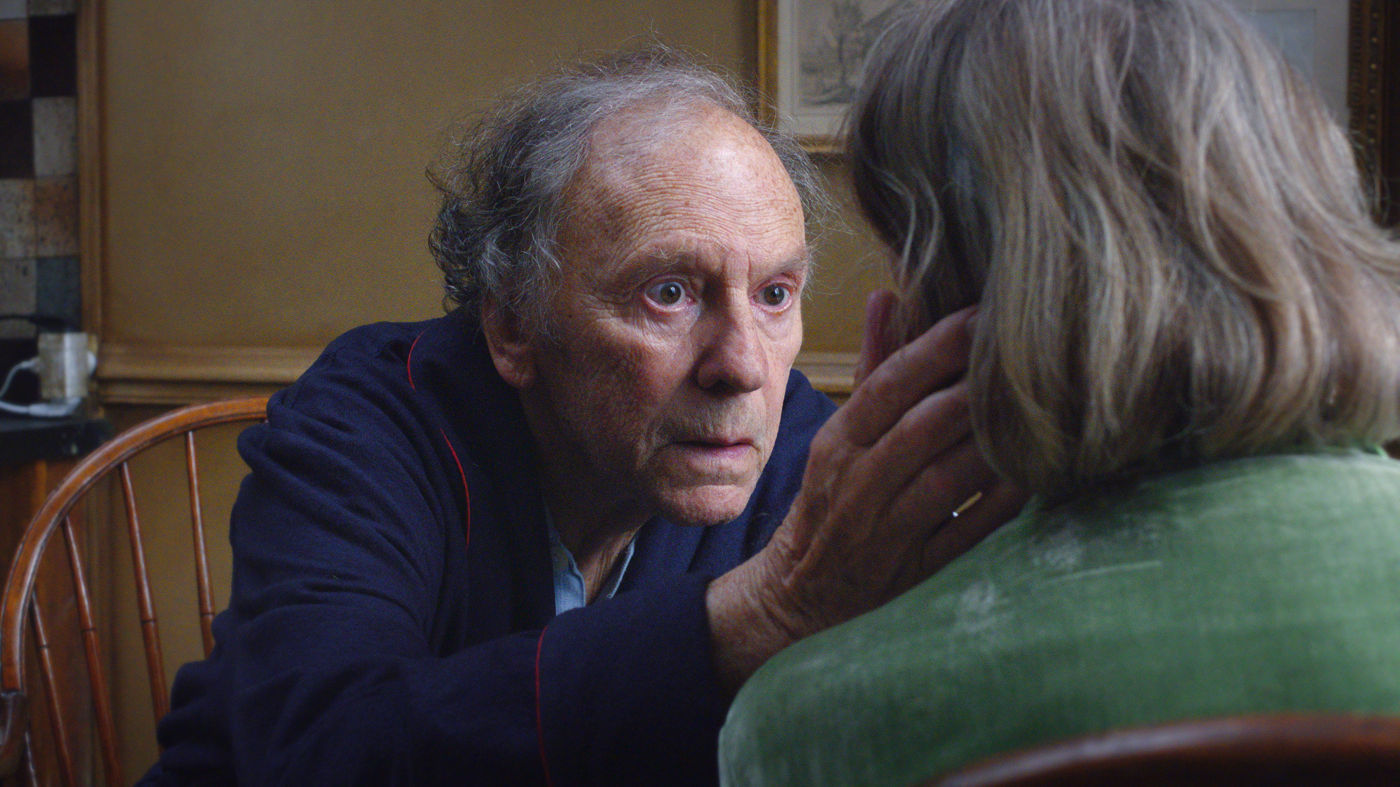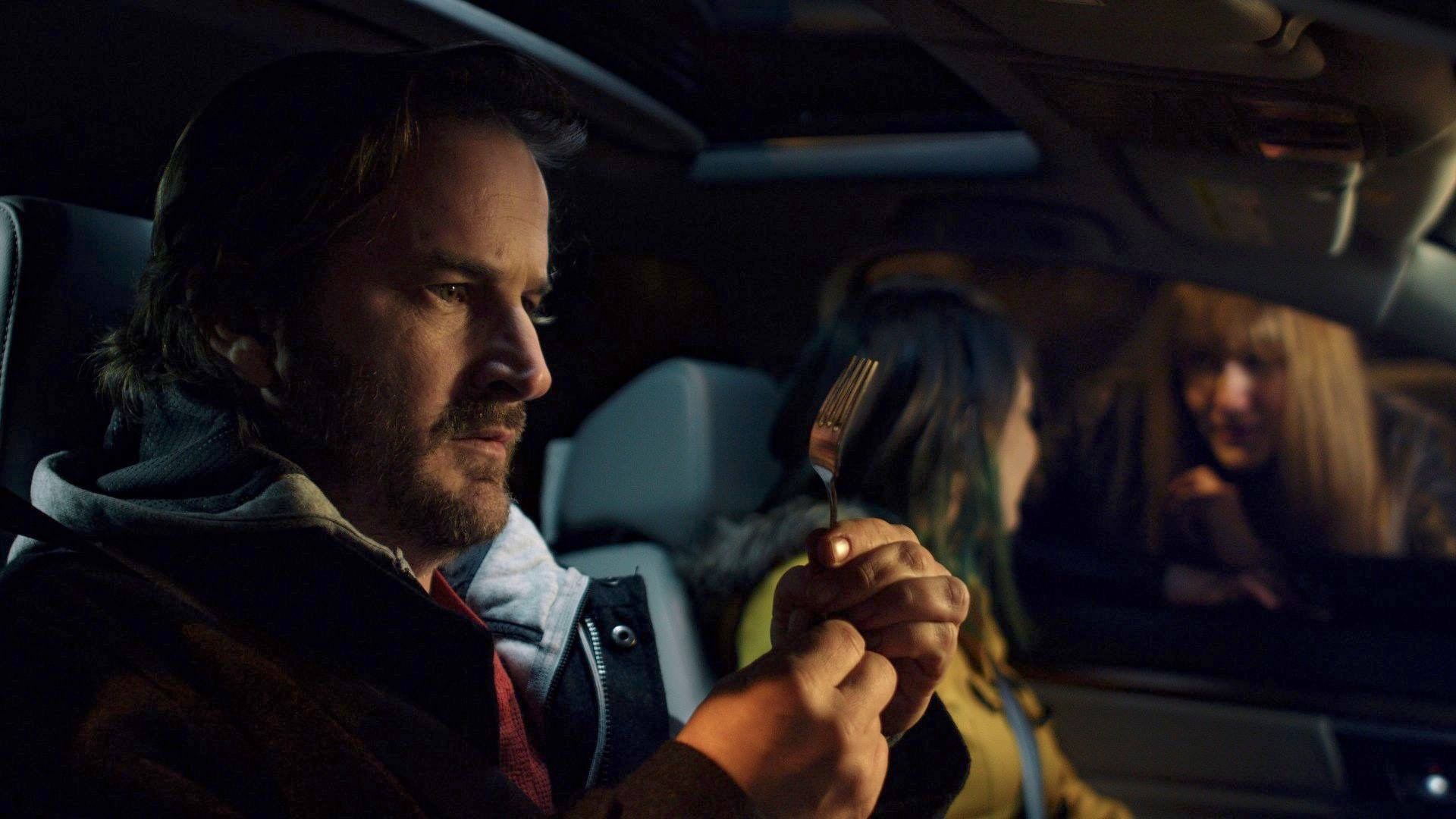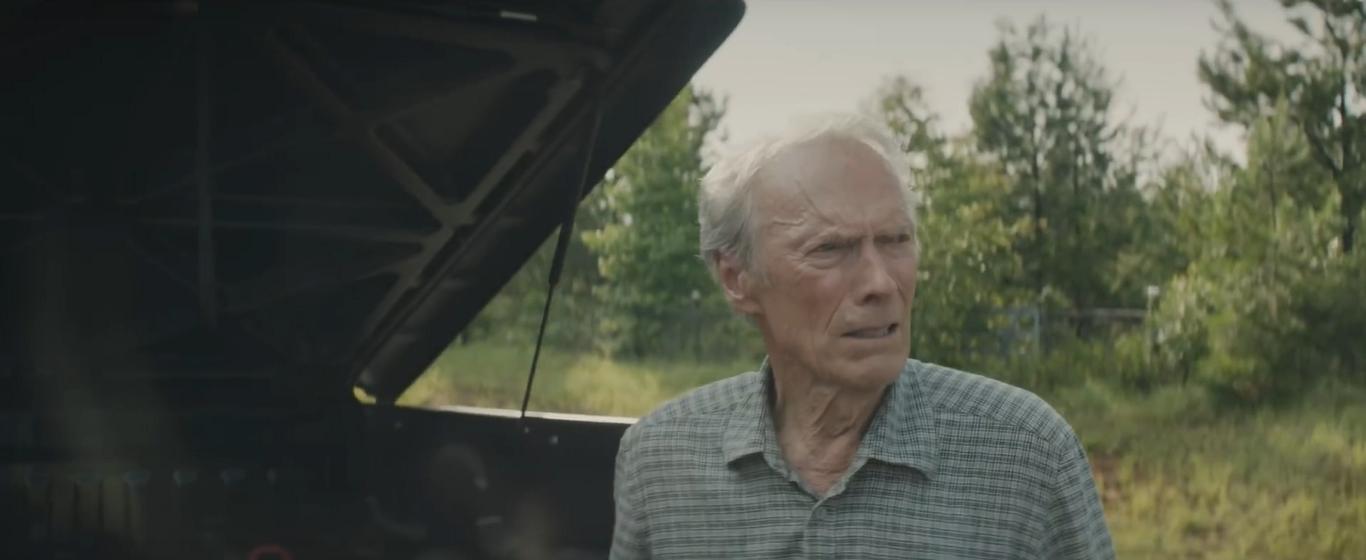As Americans, we grow up with the understanding that the primary purpose of film is to capture your attention. We don’t readily take to a product, say, which sees fit to give us a start-to-finish scene of a man feeding an invalid. And hence I give you Amour, a peculiar Austrian/French combination of existential thesis fodder and insomniac’s best friend.
Eightysomethings Georges (Jean-Louis Trintignant) and Anne (Emmanuelle Riva) are having breakfast when she suffers a stroke, leaving her paralyzed down the right side of her body. Georges is, or was, the kind of old man who needs his wife to look out for him; suddenly, he is the anchor of the pair. As Anne’s health and mobility steadily degenerate, Georges’ burden becomes greater and greater. Her steady decline and his increasing frustration (both magnificently acted) are the enduring themes of Amour. It’s about pain – the pain of an old woman dying and the pain of an old man struggling to keep his wife’s dignity and life intact. And there’s your film.
There is nothing terribly endearing about either Georges or Anne. He looks like a man slowly drowning under the weight of obligation; she has no desire to be a burden and will get nasty to prove it. I liked that the portrayals by writer/director Michael Haneke gave a more realistic touch than standard film fare. This is a reminder that Amour could be your tale, your future. However, without a strong connection to the audience, it’s much harder to be moved by the tragedy of these lives. This couple deteriorates at arm’s length. I don’t sense tragedy so much as biography: this is what happened; this is how we dealt with it. Even by the end of the film, I still didn’t especially care for either lead.
Amour is as apt a title as ever has been. Love is about pain and struggle and angst and toil as much as it is about joy. You can save the pithy crap for your wedding day. Love is demanding. Old folks understand that much better than young ones.
Speaking of demanding, Amour is not for your average viewer. It a clockwatching gala extraordinaire.  Never have you seen a camera linger with quite such oddly voyeuristic intention. We wait for conversations to finish completely; we wait for old people to complete mundane tasks. What constitutes action? An entire full-length scene of Georges shooing a pigeon out of a hallway. Twice. Take the driest film you’ve ever seen and multiply it by SIX and you will probably be up to the Amour tolerance level.
Never have you seen a camera linger with quite such oddly voyeuristic intention. We wait for conversations to finish completely; we wait for old people to complete mundane tasks. What constitutes action? An entire full-length scene of Georges shooing a pigeon out of a hallway. Twice. Take the driest film you’ve ever seen and multiply it by SIX and you will probably be up to the Amour tolerance level.
At some point, you’re going to ask yourself, “Who is this film for?” Quite honestly, I do not know. Critics? The French? The elderly? You thought This is 40 has a bleak outlook on aging? You have no idea. Those under the age of 60 will be depressed. Period. Those over 60? What do you do? Go to Amour and taunt that at least you have partial bladder control or relative use of limbs? I respect Amour in the same way I respect Requiem for a Dream or Blindness or The Road – nobody makes a film like this to market toys in happy meals. “Mommy, I got electric wheelchair Anne! Now I just need bedsore Anne to complete the set!” But, and I wish to very, very clear here: Amour isn’t as good as any of those films. There isn’t a puzzle to be solved; the only plot line is maddeningly one-dimensional. It’s a woman slowly dying and a man slowly becoming less and less able to deal with it. It’s a depressing, monotonous, unpleasant portent of old age. I won’t give away the moment that makes Amour worth seeing, but you’ll wonder after you got there if it was worth the trip.
Love is changing sheets
In full open view while the
Spouse-culprit looks on
Rated PG-13, 127 Minutes
D: Michael Haneke
W: Michael Haneke
Genre: Life is pain
Type of person most likely to enjoy this film: Masochistic grandparents
Type of person least likely to enjoy this film: Those who fear old age




Yet, like Requiem for a Dream, this film made a number of “best of 2012” lists before we got a chance to see it in the Bay Area (or at least the East Bay). I got a definite No Exit/The Plague vibe from this film.
Still sounds more exciting than Melancholia.